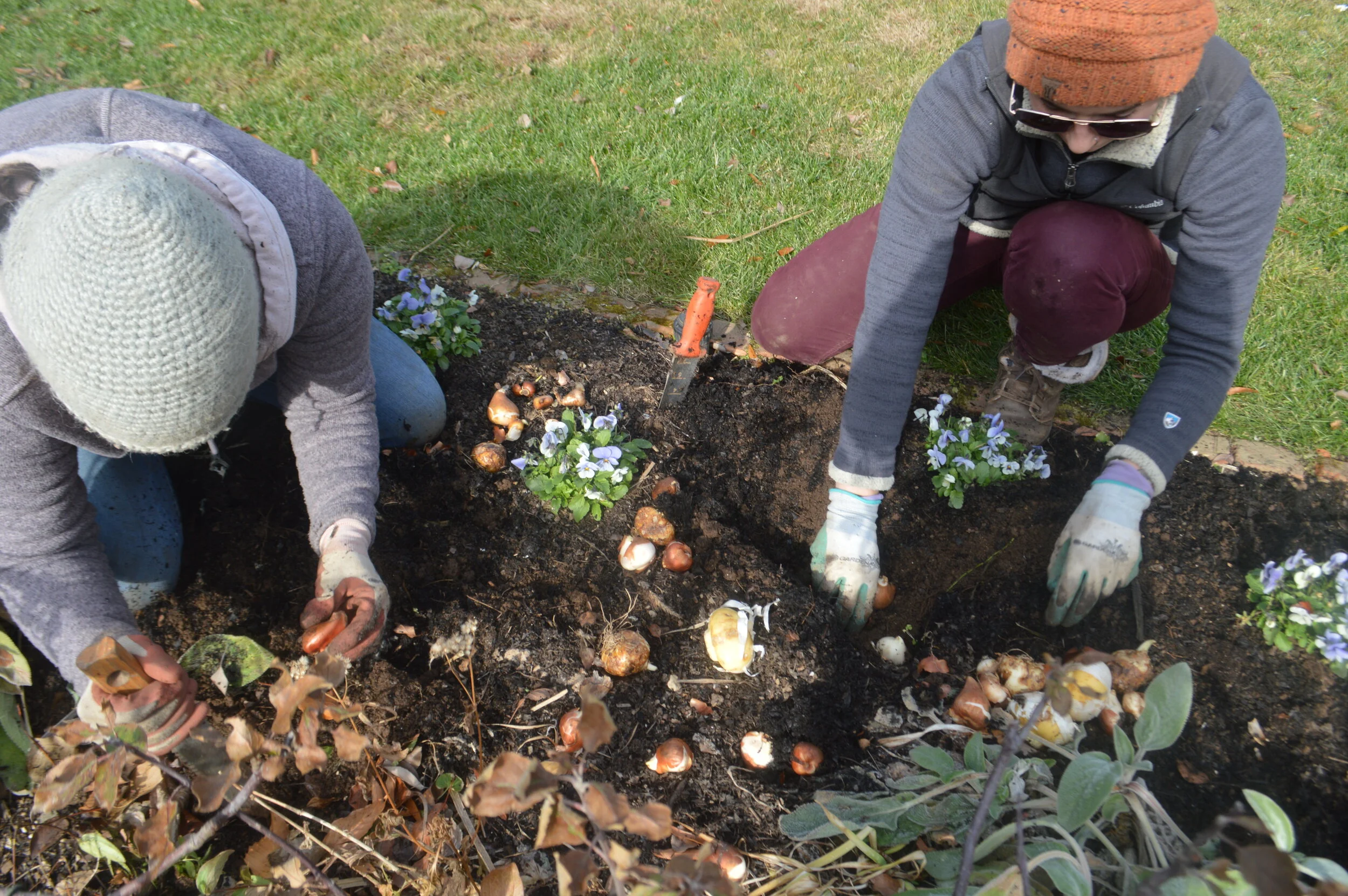The Dirt on Dirt
Emily Ellis
For the Oak Spring Garden Foundation’s horticulture, farming, and gardening staff, caring for the soil is just as important as tending to the plants it supports.
It may not look like more than a layer of dirt, but soil is a living, breathing community of organisms, and healthy soil is essential to the well-being of people, animals, and the environment. In honor of World Soil Day, an international observance day established to raise awareness of the importance of soil quality, we compiled a list of ways you can look after the ground beneath your feet.
Healthy soil in one of the OSGF greenhouses.
Get it tested. No soil is the same, and a variety of environmental factors can influence your soil’s composition. Here at Oak Spring, for instance, the soil composition of the formal garden is different than that of other garden plots on the property: due to having been surrounded by lime-washed walls for decades, the formal garden’s soil is more alkaline than most soil in the Virginia piedmont, which allows it to support different types of plants. Having your soil tested is a good way to find out what it is lacking, what it needs, and what kinds of plants you can grow.
In many areas, local cooperative extensions (like the Virginia Cooperative Extension at Virginia Tech) will test your soil for a small fee. Our gardeners highly recommend doing so if you’re looking to improve your own garden’s soil.
Mulching bulbs outside the Broodmare Barn.
Go organic. Organic matter - which is, simply put, decaying plant or animal matter, such as mulch and compost - has numerous benefits for soil. Aside from improving the structure of some types of soils - particularly the dense, clay-based ones common in the Virginia piedmont - it feeds the beneficial microorganisms and insects, such as worms, that make up a soil’s ecosystem. Types of organic matter to consider for your own property include mulches (typically used as a cover) and composts (used to improve soil health and structure) made from leaves, wood chips, grass, and livestock manure.
Do your homework first. Composting and mulching is anything but simple. What kinds to use, what quantities, and when to use them can depend on the season, soil quality, and what plants you’re trying to grow. With such a variety of factors to consider, it’s important to do your research before dumping a bag of mulch from your local hardware store over your plants and hoping for the best.
Some of the mulch bounty at OSGF.
At Oak Spring, the composts and mulches we use depends on the differing needs of the plants and soils throughout the property. In the formal garden, the gardening team uses a heated, sanitized leaf mulch purchased from a local nursery, while trees and garden beds in other areas of the estate utilize mulches and composts made on site by members of Arboriculture, Conservation, and Landscapes (ACL) team. The Biocultural Conservation Farm purchases local non-animal, organic composts to support their crops, avoiding manure composts due to the Rokeby property’s already high levels of phosphorus.
Generally, a good rule of thumb when it comes to mulches and composts is to use locally sourced materials to avoid introducing invasive organisms into your soil, one of the reasons why the ACL team makes their own from debris on the property. If you’re unsure about what mulches or compost to choose, it’s wise to consult with an expert at your local nursery garden about what types are best for your particular land and growing project.
Go easy on the fertilizer. While over-fertilizing can limit beneficial microfauna in soils, some plants need extra nutrients to thrive. For example, annual plants tend to require more soil fertility that perennials, which are able to store more energy. Again, testing your soil first will give you a good idea of whether or not you need to fertilize, and a professional horticulturist will be able to suggest a fertilizer that will work well with your soil.
The gardening team getting bulbs in the ground in preparation for Spring.
Treat it like it’s alive. The gardeners and growers of the past were unaware that soil is, essentially, a living thing, and only recently have people begun to recognize the delicate, invisible world beneath the surface and its connection to a healthy environment. At OSGF, all growers strive to care for the soil in a way that promotes both healthy plant growth and overall ecological soundness, which includes using sustainable, local organic matter and growing techniques. For example, our ACL team recently began using coconut fiber mats to keep weeds from growing around the bases of young trees in lieu of pesticides (read more about that reforestation effort, and OSGF’s other conservation projects, here.)
Treating your soil with as much care as you would your plants - and considering its overall connection to the native plants and wildlife in your area - is an important step towards a thriving garden, as well as good environmental stewardship.
Want to learn more? Check our blogpost from last year’s World Soil Day on the complexities of soil. To learn more about the awareness day, visit http://www.fao.org/world-soil-day/en/.




